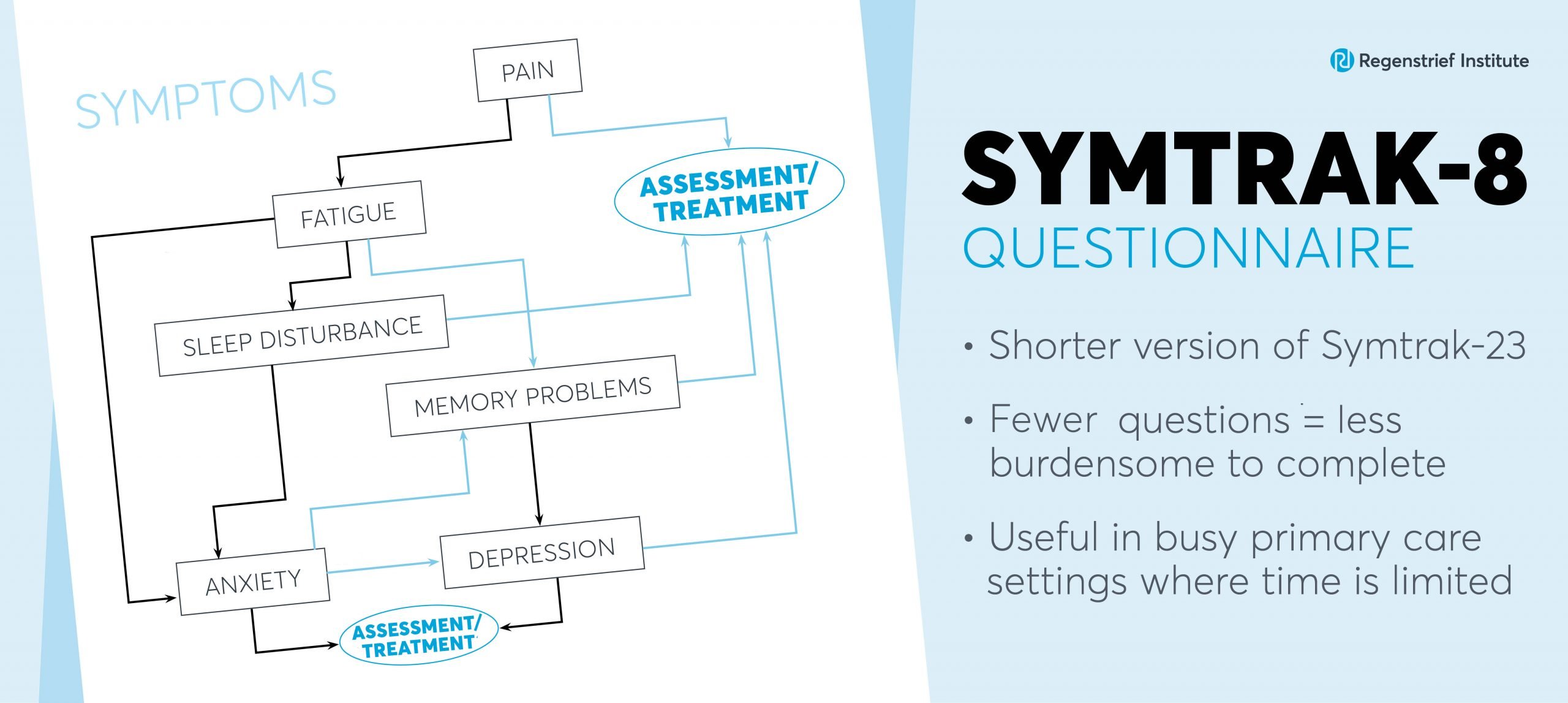Shorter version alleviates response burden and saves time
Researchers from Regenstrief Institute and Indiana University School of Medicine have developed and validated a short questionnaire to help patients report symptoms and assist healthcare providers in assessing the severity of symptoms, and in monitoring and adjusting treatment accordingly.
The tool, called SymTrak-8, is a shorter version of the SymTrak-23. The questionnaire tracks symptoms such as pain, fatigue, sleep disturbance, memory problems, anxiety and depression in older adults, enabling clinicians to provide better care for the diseases causing the symptoms.
“These symptoms are commonly reported in primary care, but they can be a sign of a variety of different diseases, so tracking them is important,” said Kurt Kroenke, M.D., a Regenstrief Institute research scientist and IU School of Medicine professor of medicine. “This shorter version of Symtrak provides the same insight as the 23-question tool, but is less burdensome to complete. It could be very useful in busy primary care settings, where time can be limited.”
The symptoms tracked by the tool can greatly impact quality of life, and they often appear in clusters as a result of multiple chronic conditions.
“The Symtrak-8 and Symtrak-23 provide a more complete picture of overall wellbeing and symptom burden,” said Patrick O. Monahan, PhD, Regenstrief affiliated scientist and professor of biostatistics at IU School of Medicine. “The sensitivity of the questionnaires can be a good barometer of the efficacy of treatments.”
The SymTrak tool draws upon strengths of existing questionnaires such as the PHQ-9, GAD-7, and PHQ-15, as well as PROMIS® (Patient-Reported Outcomes Measurement Information System) and the Healthy Aging Brain Care-Monitor. It can be filled out by a patient or a caregiver.
“We are excited about the scalability of these tools,” said Dr. Kroenke. “They are clinically practical and clinically applicable, and the option of a shorter and longer version provides more flexibility for clinicians.”
“SymTrak-8 as a Brief Measure for Assessing Symptoms in Older Adults” was published in the Journal of General Internal Medicine online ahead of print. This work was supported by National Institute on Aging grant R01 AG043465.
Timothy Stump, M.A., a biostatistician from IU School of Medicine, was also an author on the paper.
About Regenstrief Institute
Founded in 1969 in Indianapolis, the Regenstrief Institute is a local, national and global leader dedicated to a world where better information empowers people to end disease and realize true health. A key research partner to Indiana University, Regenstrief and its research scientists are responsible for a growing number of major healthcare innovations and studies. Examples range from the development of global health information technology standards that enable the use and interoperability of electronic health records to improving patient-physician communications, to creating models of care that inform practice and improve the lives of patients around the globe.
Sam Regenstrief, a nationally successful entrepreneur from Connersville, Indiana, founded the institute with the goal of making healthcare more efficient and accessible for everyone. His vision continues to guide the institute’s research mission.
About IU School of Medicine
IU School of Medicine is the largest medical school in the U.S. and is annually ranked among the top medical schools in the nation by U.S. News & World Report. The school offers high-quality medical education, access to leading medical research and rich campus life in nine Indiana cities, including rural and urban locations consistently recognized for livability.
About Kurt Kroenke, M.D., MACP
In addition to his role as a research scientist at Regenstrief Institute, Kurt Kroenke, M.D., MACP, is also director of education and training programs at the institute and a professor of medicine at Indiana University School of Medicine.
About Patrick Monahan, PhD
Patrick Monahan is a Regenstrief affiliated scientist, a professor of biostatistics at the Indiana University School of Medicine, and an adjunct professor at the IU Richard M. Fairbanks School of Public Health at IUPUI.









